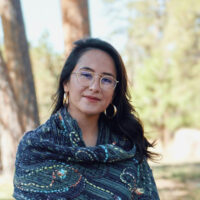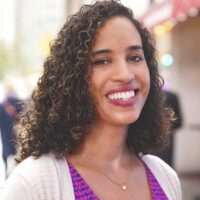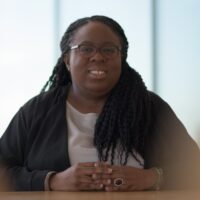Why DEI measures and pledges continue to fall short on achieving racial justice and equity in global development.
On Wednesday, December 14, 2022, EDGE Funders Alliance and the Racial Equity Index held a webinar on the state of racial equity in global development, and how this issue is reflected within philanthropic organisations. While exploring how philanthropy itself is rooted in issues of racial inequity, this conversation also presented some alternatives and visions that are key to lasting systemic change in the sector at large.
Since July 2020, the global development sector has seen numerous calls for accountability on the ongoing racism and racial violence in global development organizations. A number of pledges along with learning circles have been created to support organizations in ‘doing better’ on DEI effort. However these initiatives continue to fall short of true accountability and justice for those who have been harmed by the ongoing racial violence and racism in the global development sector.
This webinar provided an analysis on:
- why it’s critical to start discussions on DEI from Racial Equity.
- how accountability can be achieved through data and how organizations can utilize this data in their progress towards racial equity and how this will benefit philanthropy in their commitments to advancing racial justice.
- why philanthropic organisations are not only found in the root of the issue given the historical context of white saviorism in philanthropy but are also the key to lasting systemic change in the sector at large
- why the funding sector and the global development sector at large should truly commit to racial equity and racial justice
- why an index like REIndex urgently needed in the global development sector.
MODERATOR
 Uma Mishra is a global social justice, somatic abolitionist, women’s rights leader and transformative speaker. former Executive Director of Women’s March Global, the initiator and facilitator for the Racial Equity Index, and an organizational strategy (including campaign and programs) and racial equity consultant with The Better Org. As a facilitator for the Racial Equity Index, Uma is working within a BIPOC led and formed global anti-racist collective to help build the first-ever index for racial equity in global development and advocate for justice and greater racial equity in the global development sector. Uma is a somatic abolitionist in training working to further understand the impact that race has on the physical body. She uses this knowledge in her consultancy work with organizations to provide grounded facilitation in the difficult conversations that can present around race, racism, and racial equity within organizations.
Uma Mishra is a global social justice, somatic abolitionist, women’s rights leader and transformative speaker. former Executive Director of Women’s March Global, the initiator and facilitator for the Racial Equity Index, and an organizational strategy (including campaign and programs) and racial equity consultant with The Better Org. As a facilitator for the Racial Equity Index, Uma is working within a BIPOC led and formed global anti-racist collective to help build the first-ever index for racial equity in global development and advocate for justice and greater racial equity in the global development sector. Uma is a somatic abolitionist in training working to further understand the impact that race has on the physical body. She uses this knowledge in her consultancy work with organizations to provide grounded facilitation in the difficult conversations that can present around race, racism, and racial equity within organizations.
PANELISTS
 Laura Vergara (SUKUAMIS | Wisdom and Healing)
Laura Vergara (SUKUAMIS | Wisdom and Healing)
Laura (she/her) is a Queer Colombian Feminist activists, community, builder, and strategist inspiring collective action through the power of storytelling. Her activism began through her work within the immigrant and refugee rights movement and expanded across feminist and intersecting social movements. She has worked in and with civil society, non-profits, philanthropy, and social enterprises. She is the co-founder of SUKUAMIS | Wisdom and Healing, a human rights consultancy collective, a team member of inroads, Global Resilience Fund, With and For Girls Collective, and serves as an advisory member of the Racial Equity Index and a board member of FRIDA | The Young Feminist Fund. She holds a Masters of Public Administration and a dual Bachelor’s degree in International Studies and Finance. She finds inspiration in social movements, collective care, art, and those that root themselves in solidarity and love.
 Masana Mulaudzi – Programmes Director, Sonke Gender Justice
Masana Mulaudzi – Programmes Director, Sonke Gender Justice
Masana Mulaudzi is an economic analyst and civil society actor with over 12 years’ experience, working on violence prevention, social cohesion, economic justice, feminist praxis and social movements. At Sonke Gender Justice, Masana works as Programmes Director, overseeing over 15 projects across Africa and a multi-national team working to enhance gender equality. She is lead researcher on the UNDP report (and journal article) “Forging a Resilient Social Contract in South Africa: States and Societies Sustaining Peace in the Post-Apartheid Era” and author of the book chapter, “The Necessity of Rage in Feminist Parenting.” She is currently a Senior Fellow at the Atlantic Fellows for Social and Economic Equality at the London School of Economics, where she produced documentary and research series “Triple Jeopardy: Race, Class and Gender among the Black Middle Class in South Africa.” Masana serves as a Peer Reviewer for the seminal research collective, the Racial Equity Index and on several boards. In 2021, Masana was recognized by aPolitical as one of the Top 100 Women in Gender Policy globally for her work on Feminist Movements and Leadership. In 2018, she was identified as one of the London School of Economics’ Leading Women. Published in several journals, newspapers and online fora, Masana has a multi-disciplinary background with an MSc in Political Economy of Late Development from the London School of Economics and Political Science and a B.Com. in Politics, Philosophy and Economics from the University of Cape Town. Masana was the first Machel-Mandela Fellow at The Brenthurst Foundation in Johannesburg and is an alumnus of the South African Washington International Program and the David & Elaine Potter Fellowship. Masana is a Chevening Scholar from 2012–13 and an Anglo-American Open Scholarship recipient. She is fiercely passionate about feminist parenting, queer and economic justice in Africa through the transformation of the international political economy for greater accountability by governments and corporates.
 Tesmerelna Astbeha – Wellspring Foundation
Tesmerelna Astbeha – Wellspring Foundation
Tesmerelna Atsbeha is a senior program officer on the Women’s Rights team at Wellspring Philanthropic Fund. Her grantmaking focus is reproductive rights in Latin America and the global prevention of violence against women. She currently supports the creation of the Shared Advocacy Agenda Accelerator. Tesmerelna is also a member of the Gender Funders Co-Lab, the Human Rights Funders Network, the Global Philanthropy Project, and serves on the board of the Funders for Reproductive Equity. She is also part of the Global Women’s Institute leadership council. Tesmerelna previously worked at UNWomen in the policy division and at Columbia University’s Mailman School of Public Health as part of the International AIDS Care and Treatment Program (ICAP). Prior to that, she was part of sexual and reproductive health research and implementation projects with the United Nations Development Program (UNDP), the Global Fund, and several academic institutions. She holds a BA in international relations from Brown University, a MSc in public health for developing countries from the London School of Hygiene and Tropical Medicine, and an MA in organizational psychology from Teachers College, Columbia University.
 Tina Ajuonuma – The Better Org
Tina Ajuonuma – The Better Org
Tina is an organisational development practitioner and organisational behaviour researcher with 20 years experience in the non-profit sector within the Arts and International Development across Africa, Europe, and North America. As the Founder and Principal Consultant at The Better Org, Tina has extensive experience within the areas of anti-racism, diversity, equity & inclusion, culture change, strategy and planning, project management, operational design and delivery, human resources, organisational learning, and impact evaluation.
Prior to establishing The Better Org, Tina led the Planning & Performance team with the international advocacy and campaigning organisation ONE Campaign, where she oversaw organisational development initiatives, global strategy and planning, project management, and impact measurement. Prior to working in International Development, Tina worked in the Arts sector on programmes focused on creative education and cultural diversity.
Tina serves on the working group of The Racial Equity Index, a collective of Black, Indigenous, People of Colour working in international development, advocating for greater racial equity and racial justice in the sector through the creation of a racial equity accountability mechanism, and she is also a board member for 64 Million Artists, a social enterprise that creates programmes that facilitate using everyday creativity to create positive social change.
Tina is a Doctoral researcher at the University of Warwick, where she is exploring restorative and transformational justice practices within organisations. She also holds an Executive MBA from the University of Warwick, where she was awarded a distinction grade for her research on Bias in Diversity, Equity, and Inclusion programmes, is an accredited Psychological Safety Practitioner, and is a practitioner in Prince2 and PMD Pro.
Join as an accountability partner with the Racial Equity Index: https://www.theracialequityindex.org/accountability-partners
How to confront race and racism in international development: https://odi.org/en/insights/how-to-confront-race-and-racism-in-international-development/
Racism, power and Truth: experiences of people of colour in development: BOND – https://www.bond.org.uk/resources/racism-power-and-truth/
About the Racial Equity Index
The Racial Equity Index is an accountability tool that will measure racial equity (and inequity) within and across the Global Development sector with a focus on global development organisations (non-profits, c3, charity organisations in the Global North (UK, UK, EU – to start with)). Created by a BIPOC founded and led global group of people who have all experienced racism and racial violence in global development, this groundbreaking tool will critically demonstrate and encourage transparency and active response from actors within this space to address structural and systemic racism with their own institutions, organizations, approaches, and practice. The Racial Equity Index aims to dismantle all forms of racism within the Global Development sector and promote and embed racial equity across the sector from its internal power structures, funding streams, programming, research design and evaluation, marketing, and communications, to its external methods of engaging with BIPOC communities. With our tools and data we hope to promote continued accountability and transparency on racial equity within organisations in global development and the sector at large.
In the past year (since our founding in July 2020), the Racial Equity Index (a BIPOC volunteer collective) has worked to create, analyze and have peer-reviewed the results from our Global Mapping Survey which provided the first cross-sector look at the indicators used to define racial equity in global development along with the impacts of experiencing and witnessing racism in global development. We are now at the stage of finalising our peer reviewed organisational survey tool that will allow us to assess, score, and provide data to organisations in global development on their racial (in)equity in their organisations. We hope to work in partnership with organisations in order to promote community, shared accountability, and transparency on data on racial equity and the commitment required to build a just and more equitable sector.

Leave a Reply
You must be logged in to post a comment.